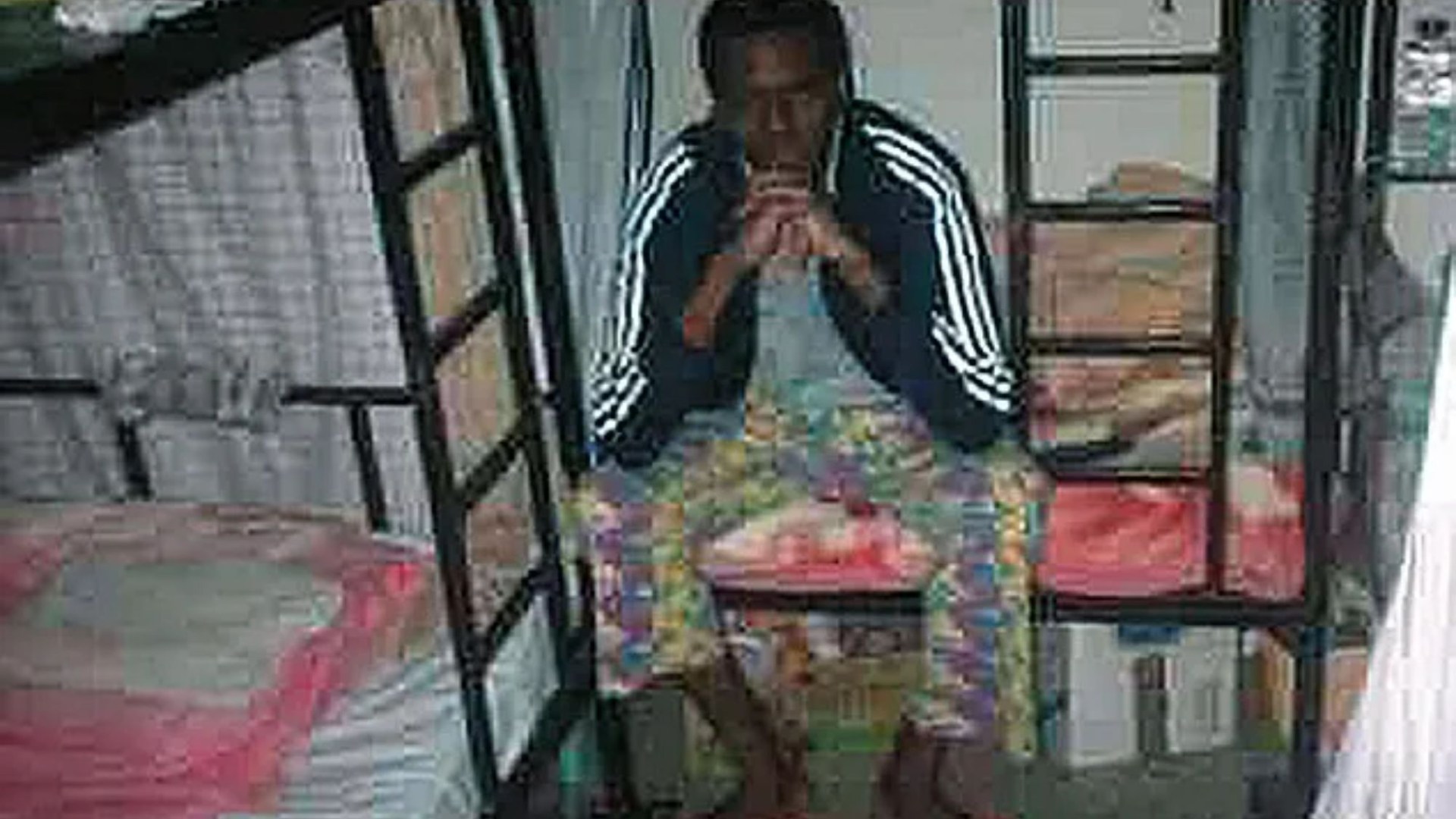ELECTROCUTION, rape and terrorist cell mates – jail life in Dubai is truly a brutal existence.
Prisons in the United Arab Emirates’ ‘playground for the rich’ are notorious for their abhorrent conditions, with former inmates claiming overcrowded cells are “the most disgusting place you can imagine”, with no toilet facilities, showers and lice-ridden mattresses.
13

13

13
The squalid conditions have come under the spotlight this week after Irish air hostess Tori Towey faced being locked up for attempting to take her own life.
The 28-year-old, from Boyle, County Roscommon, was charged with attempted suicide after allegedly suffering domestic violence and alcohol consumption.
Tori, who worked for United Arab Emirates, was taken to a police station where her passport was destroyed and a travel ban was imposed on her.
But yesterday, after mounting public outcry and intervention from Ireland’s government, the case was closed and Tori has now flown home.
While she has dodged a truly terrifying ordeal, there are scores of Brits and tourists in Dubai who have suffered harrowing experiences at the hands of the city’s judicial system, including David Haigh.
The former Leeds United managing director, now 46, who was incarcerated there for 22 months in 2014, believes Tori was “lucky” to be released as quickly as she was.
David tells The Sun: “I’d say 90 per cent of people in Dubai are unknowingly breaking the law and when there’s an issue the law comes at you.
“Each day that goes by there are Brits and other nationalities locked up in Dubai that shouldn’t be there but can’t get out because the justice system is corrupt.
“I was imprisoned 10 years ago and I believe I’d be dead or still in there now if I didn’t run a football club and had a high profile.”
David claimed to have been raped, beaten up and electrocuted during his horrific near-two-year ordeal and is among many former inmates to share similar, chilling experiences.
Electrocuted genitals
In 2012, Karl Williams was imprisoned for a year after police found drugs in the boot of his hire car. He compared the al-Awir jail to the “Dubai version of Alcatraz”.
In his memoir, he recalled seeing inmates being stabbed to death in violent clashes that were not stopped by guards and feared being gang raped.

13

13

13
Karl wrote: “I saw men get stabbed in the neck and others sliced down their faces. Blood splattered every surface as prisoner after prisoner was sliced.”
The father-of-one, who was arrested alongside pals Grant Cameron and Suneet Jeerh, claimed they were forced to sign documents in Arabic at gunpoint and he was electrocuted with a cattle prod.
Karl, whose allegations were denied by Emirati police, wrote: “They pulled down my trousers, spread my legs and started to electrocute my testicles.
“It was unbelievably painful. I was so scared. I started to believe that I was going to die in that room.”
I went from having every boy’s dream of running a football club and being on top of the world to sleeping on a concrete floor and being tortured, tasered and raped
David Haigh
He claimed Russian gangsters ruled the prison wards and used HIV-positive inmates to rape and deliberately infect others as a form of punishment.
A report earlier this year claimed sexual abuse and rape were an “everyday occurrence” inside the jails.
In 2013, Karl and his friends were pardoned after media coverage of the case led to then Prime Minister David Cameron raising the matter during a state visit to the UAE.
‘Raped by guards’
David was arrested after flying to Dubai to settle a financial dispute with his former employer GFH Capital, a private equity group in the UAE, in May 2014.
He was detained for fraud, after allegedly signing off on fake invoices worth millions of pounds and channelling the funds to bank accounts he controlled, and later for slandering his former employer.
David strenuously denied all the claims, insisting he was “set up”.
What happened to Tori Towey?
ELATED Tori Towey has arrived home in Ireland today after being detained in Dubai and banned from travelling. Here we reveal the timeline of events:
28 June – Tori was charged with attempting to end her own life after allegedly being assaulted.
9 July – The Irish native’s passport was said to have been destroyed and a travel ban imposed against her.
Her situation is raised in the Dáil – the lower house of the Oireachtas – by Sinn Féin deputy leader Mary Lou McDonald.
President Simon Harris, known as Taoiseach, says the Government will do all it can to help Tori.
10 July – Tori is said to be increasingly positive about her situation after the involvement of the Taoiseach.
It’s confirmed that the travel ban has been lifted and Tori is free to return to her home in Ireland.
The case against Tori is dropped by the Dubai Public Prosecution.
During his 22-month detainment, between three of Dubai’s main jails including Bur Dubai police station, David claimed there were “five serious episodes” of physical abuse including rape.
He told us: “I went from having every boy’s dream of running a football club and being on top of the world to sleeping on a concrete floor and being tortured, tasered and raped.
“You would be regularly hit over the head while waiting in lines by guards. When they were carried out searches they would force you to hold stress positions for hours on end.
“I suffered terrible things. You have dark days. I had saved this long piece of material so that I could hang myself because I didn’t think I would get out.”
In addition to the rape, David claims inmates tried to sexually abuse him.
He claimed to have suffered damage to his knee, hands, shoulder, eyes, teeth and a fractured cheekbone – much of it inflicted by prison guards and police.
He added: “The only way to describe being in prison in Dubai is hell. I was held for 22 months and I’ll never forget it – the stench, the dirt, the smell, the heat, and the lack of any information whatsoever.”

13

13

13
David spent the first 15 months inside what he described as “a concrete box” that was extremely overcrowded with up to 20 people “sleeping head-to-toe” inside a cell meant for four people.
He says: “There was no airconditioning, no functioning toilets, showers or toilet paper, there was just a hole in the floor to go the bathroom.
“The mattresses were dirty, lice-infested and never washed. Dirty doesn’t do it justice. You can imagine with the heat how disgusting it was.”
David says the worst of his abuse happened within the first few months of his incarceration and he believes the only reason it lessened was due to his being a high-profile case.
David, who was released in March 2016, accused the British embassy in Dubai of “wholly inadequate” support throughout his ordeal.
‘Absolute torture’
In 2016, Zara-Jayne Moisey was locked up in Al-Barsha prison after going to a police station to report she was raped by two British men.
She faced a year in jail for extra-marital and alcohol offences after authorities claimed a video proved the trio had consensual sex.
Recalling her ordeal behind bars, she said: “It was the most frightening experience of my life, absolute torture… I will never forget the jail, it’s the worst place I have ever been.
“They kept the lights off in the day so we’d be eating in pitch blackness. Then they turned them on at night so no one could sleep.”
I don’t know whether he died or didn’t but I get shivers now thinking about it. It’s terrifying to think about
David Haigh
Albert Douglas has been in prison since 2021 due to his grandson’s business, a flooring company, racking up debts he couldn’t afford to repay.
The grandfather claimed to have suffered “demonic” beatings and gone deaf after his head was used as “a football for some of the guards”.
He told The Sun he has been hospitalised multiple times for a broken shoulder, broken hands and concerning head injuries.
Additionally, he claims to have been “denied food and water” at times, which meant he “had to drink toilet water to survive”.
While Albert has no association with his relative’s business, under Dubai law anyone linked to a company that owes money can be liable for debt and family members are often chased down for payments.
The 61-year-old, from London, was ordered to pay a £2.5million fine by the UAE, which his family cannot afford. They fear he could die in prison.

13
‘Neglect’ death
Violence is rife within the prisons and according to ex-inmates prison guards, police officers and prisoners are all involved in the attacks.
David says he is haunted by what he witnessed including police officers allegedly assaulting a man, believed to be Pakistani or Indian, until he fell unconsciousness.
He tells us: “They were beating him up very badly, and they were taken to an area of the room where there was no cameras
“I remember him falling on the floor near me, they were using tasers and were standing on his throat. Then he stopped breathing and they dragged him away.
“I don’t know whether he died or didn’t but I get shivers now thinking about it. It’s terrifying to think about.”
Booze laws in Dubai
By Sayan Bose, Foreign News Reporter
JUST like any other Arab nation, the UAE also has strict laws around the consumption of alcohol.
In Dubai, anyone caught drinking alcohol in public places could face potential prosecution as well as jail time for up to six months.
A hefty fine of £1,000 can also be issued if a person is found intoxicated in public places.
Consumption of liquor and alcoholic beverages is only permitted inside designated bars and restaurants with valid licenses.
People can consume booze inside private properties as well, however, they would a valid licence to purchase alcohol.
Although it has become significantly easier to obtain such a licence in Dubai in recent times.
In 2011, maintenance worker Lee Bradley Brown, 39, died while being held in Bur Dubai police centre after allegedly suffering horrific abuse.
Witnesses say he was “beaten to a pulp” by six police officers and at one point he was allegedly stripped, handcuffed to a chair and hit with batons, fists and feet.
A source told the Daily Mail that the vicious attack “must have caused some terrible internal injuries”.
They added: “The poor bloke stood no chance at all. At one stage he was thrown against the concrete wall of a cell and landed badly.”
Dubai authorities said Lee, who was held for an alleged altercation with a housemaid, died of natural causes after “choking on his own vomit”.
Later an inquest in the UK concluded his death was from “neglect” during the five days spent inside the prison, with lack of food and medical care “probably” contributing to his passing.
I used to wake up in the middle of the night screaming and crying, not knowing why
Karl Williams
Chef Luke Tully, from Bishop’s Stortford, Herts, was jailed for 19 months after police mistook a restaurant booking for 10 people as a coded request for 10g of cocaine.
He was arrested in February 2020 after cops raided his flat looking for drugs and threatened to “throw me off the balcony” if he didn’t produce them.
After two weeks of interrogation including the threat of extreme violence including electrocution and beatings with a metal object, Luke was moved to al-Barsha detention centre. He would moved between a further two prisons.
Inside, he recalled sharing cells with “rapists, terrorists, people of all nationalities” – and says many inmates slept on the floor.

13
Luke was sentenced to two years imprisonment for drug use despite a drugs test coming back negative.
During his incarceration he said he was only allowed outside once in seven months, for a measly 40 minutes, and at food that “I wouldn’t give to my dog”.
He was eventually freed after being moved to a jail in Abu Dhabi due to guards saying the prison was “overcrowded” and they believed he had served his sentence.
Shortly after Luke’s release in 2021, the 43-year-old posted a message to Brits considering a visit to the UAE, that read: “Don’t bother if you value your liberty.”
‘Screaming & crying’
Many of the inmates said they were mentally scarred from their experiences, some have suffered PTSD and many have struggled to adapt to normal life.
Karl wrote: “I used to wake up in the middle of the night screaming and crying, not knowing why. I had mood swings, it must have been hard for my family to be around me.”

13

13
David says he was treated for PTSD and spent six months over several years in The Priory to overcome terrifying flashbacks and scars from his incarceration.
“They are things you never get over and I know I will never get justice against the people who did these bad things to me,” he tells us.
“I’ve gone through a lot of treatment but things like hearing Arabic music, smelling Arabic perfume or hearing the language would set off my PTSD.
“It was almost like someone was slowly replying a bad VHS tape in your brain of all the horrific things you have witnessed.”
Since his release, David cofounded Detained International, a London-based legal advocacy NGO that provides legal advise to victims of injustice in the UAE and Middle East.
In a statement about David’s case, the Foreign and Commonwealth Office previously told The Guardian: “Our embassy staff were in almost daily contact with Mr Haigh throughout his detention, and this included regular checks on his welfare.
“We also regularly raised his case with UAE authorities, letting them know we were following it closely.
“We take Mr Haigh’s allegations of mistreatment extremely seriously and are setting out our concerns to the UAE authorities. We only raise allegations of mistreatment when we have the individual’s consent to do so.”




